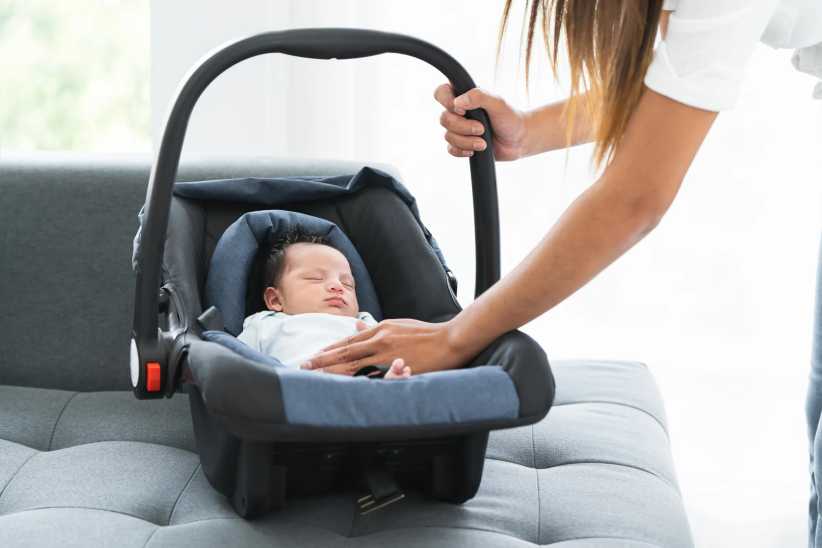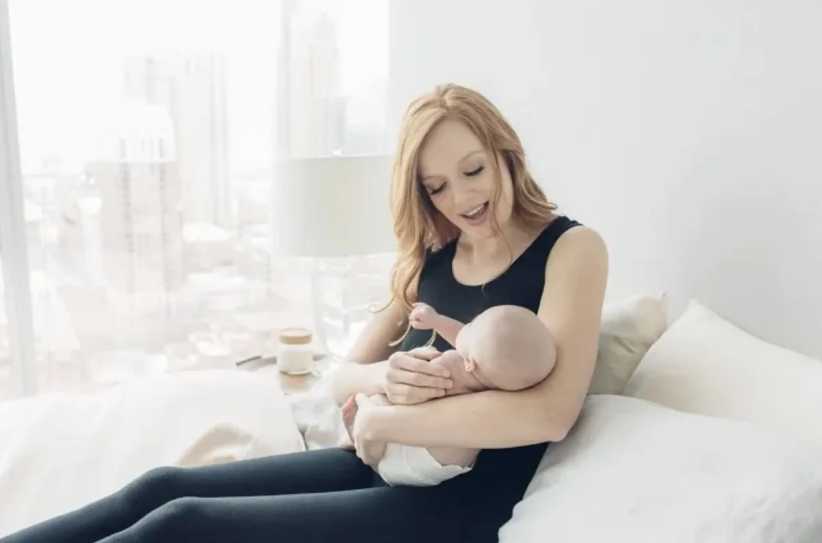
Catherine Newman, the author of Waiting For Birdy, a candid memoir about anticipating the birth of her second child while also raising a toddler, brings her delightful wit to the page once again for the second act in Catastrophic Happiness: Finding Joy in Childhood’s Messy Years. In this new memoir, Newman narrates her journey raising her son and daughter as they blossom from preschoolers into teenagers.
We sat down with Newman—who is also the etiquette columnist for Real Simple, a regular contributor to the New York Times’ Motherlode blog, and editor-in-chief of the James Beard Award-winning kids’ cooking magazine ChopChop—to learn more about how her children inspire her work and how she’s able to incorporate humor into poignant topics that every parent can relate to.
What inspired you to write Catastrophic Happiness? Did you always plan to write a follow-up to Waiting for Birdy?
I wrote them both because all of the crazy stuff I think of all of the time speaks to other parents. And if there’s a takeaway, it’s probably [that] you’re not alone… The first memoir is [set] when my daughter was born, so I thought I was going to be writing about the kids, so I don’t think it was a huge shocker that I would have more to say as they got older.
A column you previously wrote on babycenter.com, “Bringing up Ben and Birdy,” has a similar structure to your two memoirs. Would you say that your writing online helped shape your books?
When I first started writing the babycenter.com column, the word “blog” didn’t exist yet. So when it was assigned to me as a column, I wrote it always as an essay, with a beginning, middle, and an end, rather than in the blogger-kind-of-scattered-shot thought. And that’s a lucky thing for me, because it turns out that translated well to the printed page… [When writing my books] I kind of depended on the babycenter.com column, which was fantastic. I wrote [the column] for years and in some ways it was the most important thing that ever happened to me as a writer.
 What do you hope to evoke with the title Catastrophic Happiness? What is exactly is “catastrophic happiness” to you?
What do you hope to evoke with the title Catastrophic Happiness? What is exactly is “catastrophic happiness” to you?
The name is meant to communicate the incredible mixed feelings that parents have. You know, [the feeling that] you love your kids so much, but you’re terrified they’re going to die; and you experience so much joy, but there’s always this kind of shadow of your own potential heartbreak. Even if nothing goes wrong, the kids are going to grow up and leave you. I have a 16-year-old now, so I’m feeling that more acutely, but there’s just always this kind of drum of loss in the background—even as things are so joyful—so I think that’s what it means.
Did you ever imagine that you would write about children fighting over who brushes their teeth first or your son’s hair length?
I did not imagine that I would be doing that. I think when the kids were babies, the things that felt more pressing for me to write were not the things I had been writing about as an academic. And so it turned out that there was a certain kind of daily-ness, that however sort of boring it is, was also really interesting to me as a subject.
Does it get harder to write about your children as they get older? Do you have to reveal less? How do your children feel being the topic of discussion?
I actually stopped writing a weekly column about them years ago because of that very thing. I instead started writing a weekly recipe column, which is more or less what I continue to do. Though I do still write about the kids, they’ve read the most significant things I have written about them in the last four years. And that feels right to me that they would have an opportunity to say: “Hey, I don’t really want you to write that.”
By using your children as a topic of discussion, have you seen a rise in criticism? If so, how do you deal with that criticism?
That’s the nature of the internet, as everybody knows those horrible angry comments that don’t seem like people even read what you wrote. I either ignore it or I engage with it directly. And I’ve had some luck just writing and saying: “Hey, I’m actually a flesh-and-blood person reading this nasty comment and it really hurt my feelings.” And people are completely taken aback by that and have sometimes apologized or engaged in further conversation. In general, I ignore it and if you were asking my advice, I would say: “Don’t read the comments.” But the truth is I occasionally will engage with it.
[gravityform id=”13″ title=”false” description=”false” ajax=”true”]
You use humor to address an array of topics—including Birdy wanting to suck a dirty washcloth or even a discussion about sex. Is that something that you do on purpose, or does it come naturally?
I think that’s the writer’s trick to getting through hard things. If you can see it as a funny story then you can survive it. I feel like anything that happens to us, with some exceptions, I can see that it’s a funny story. I can see the shape of the funny story that I’m going to tell and it makes me sometimes even be able to laugh at the moment. Even while you are scrubbing barf out of the floorboards with a toothbrush, you can think: “Oh this will be funny to somebody.” So I think you’re sort of screwed as a parent if you can’t laugh at stuff as it’s happening.
What topic was the hardest for you to write about?
I ended up writing about a miscarriage that I had. My editor felt like I kept alluding to it and skirting it. And she sort of demanded that I write an entire chapter about it. I’m really glad that I did, but it’s just not that funny of a story—to lose a pregnancy. And it doesn’t have that redemptive ending. I love my life and I have plenty of kids, but it was hard to write something that was really just kind of crappy and sad. And it made me realize how I count on humor to carry me through hard things.
How do you balance motherhood, family life, and your writing career?
On one hand my husband does all of the laundry, all the dishes, and is just the most incredibly generous person to live with. And on the other hand, I have all of these deadlines all the time so I can’t really indulge in writer’s block or whatever else because I won’t be able to pay my bills. So I think it helps me in a way that the things I do for love and the things I do for money are the same thing, because I’m always doing it.
What do you hope your readers will take away from your new book?
That they’re not crazy and they’re not alone. And if this doesn’t sound too New Age or corny: You have permission to enjoy your kids. There’s just a lot of talk of how stressful it is. How you have to shepherd your children to their Portuguese lessons and they’re puking in your hair and all of the constraints on parents. But I think it’s so much fun to have kids in the house and I think that’s a great thing to talk about. And I don’t mean to brag about how my kids are so smart and they win all of these prizes, but I like that it’s fun and a pleasure and not permanent.
To learn more about Catherine Newman, visit catherinenewmanwriter.com & benandbirdy.blogspot.com!











